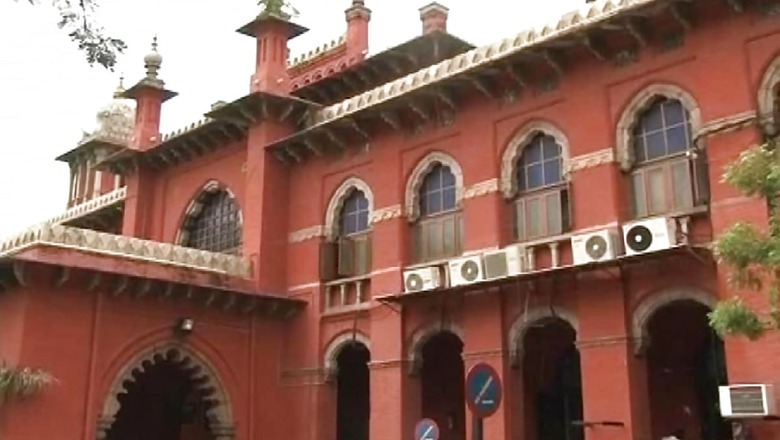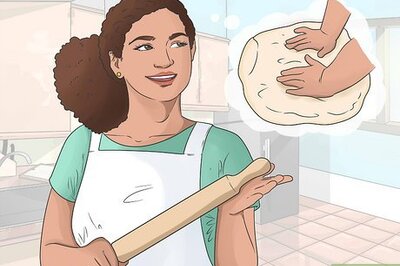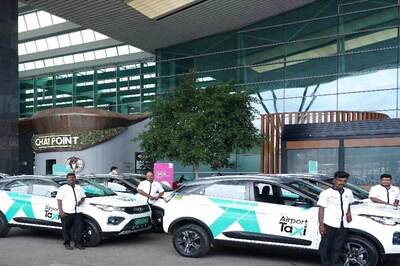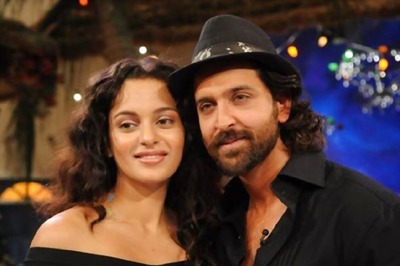Madras HC Accepted Mistake by Questioning Validity of Special Courts for Cases Against Lawmakers: SC

views
The Supreme Court Wednesday said the Madras High Court has accepted that it has committed a mistake by questioning the constitutional validity of setting up of special courts to prosecute lawmakers expeditiously pursuant to its order on a PIL seeking fast tracking criminal cases against them. The top court was told by amicus curiae and senior advocate Vijay Hansaria that that there was a special magisterial court in every district of the country since April 2019 to deal with cases against the lawmakers and raising of such an objection now by the Madras High Court was not correct.
His view was also echoed by one of the judges who asked: Why they are making such a comment unnecessarily. A three-judge criminal rules committee of the Madras High Court has said that special courts (directed to be setup for the first time in 2017) can only be offence centric and not offender centric and can be constituted only be statute and not by judicial or executive fiats.
“They themselves have accepted that they have committed the mistake,” said the bench comprising Justices N V Ramana, Surya Kant and Anirudhha Bose, adding that except the Madras High Court, all other high courts have no objection with regard to setting up of special courts to prosecute the lawmakers. “Let’s not side track the issue. We will deal with this aspect later,” the bench said, adding Whatever directions we have passed in this matter must be implemented.
Hansaria and lawyer Sneha Kalita said that the conclusion drawn by the Madras High Court’s Committee that setting up of the special courts for the lawmakers was unconstitutional is not correct and it is also incorrect that the special courts can never be constituted by judicial order. The bench was hearing a PIL filed by lawyer and BJP leader Ashwini Upadhyay seeking speedy disposal of cases against the lawmakers. During the hearing, the bench did not agree to the submission of Hansaria that a direction be given to the special courts to grant protection to the witnesses in cases against lawmakers.
“There are thousands of witnesses in over four thousand cases against MPs and MLAs and is it possible to grant protection to all. There must be some application by somebody seeking protection,” the bench said. On the issue of providing public prosecutors to try such cases, the bench said the example of 2G and the coal scam cases cannot be followed in such matters which are huge in numbers and moreover, this aspect is governed by CrPC as well. The top court granted two weeks time to the Madras high court to file a reply and said that in the meantime, they may take steps to rectify their earlier views. The amicus curiae also sought fast-tracking cases against serving lawmakers saying, “Those who have pending cases are making laws for us. There is public interest involved here. Some of them are ministers.”
He said there were 165 such cases in Karnataka, but the state government has set up only one special court in Bangalore. “There are 700 to 800 witnesses who live in far flung areas. The Karnataka HC must designate a court having regard to geographical area of occurrence and witness locations,” he said.
In West Bengal, there is one court in Barasat trying 154 cases and the Calcutta High Court may be asked to designate more special courts for such matters, he said. The apex court had asked the high courts to see that the matters pertaining to the grant of stay in criminal cases be heard on an urgent basis to ensure that the trials are started against the lawmakers.
The bench, meanwhile took note of the submissions of Upadhyay that his plea to impose a lifetime ban on convicted lawmakers be heard and granted two week time to the Centre to file its response. Direct the Respondent-1 (Centre) to take appropriate steps to setup Special Courts to decide the cases related to people representative and public servants within one year and implement the important electoral reforms, proposed by the National Commission to Review the Working of the Constitution, Law Commission of India in its 244th and 255th Report and Election Commission, said one of the amended prayers.
The fresh plea has also sought a direction to the Centre to take appropriate steps to debar the person convicted for the offences specified under some provisions of the Representation of the People Act (RPA)from contesting MLA or MP election, forming a political party or becoming office bearer of political party. The plea has also sought some changes in the RPA provisions to ensure that politicians should not get special relief such as contesting elections after the expiry of six years after conviction and sentence.
That when a member of Executive/Judiciary is convicted for even a minor crime, he is debarred from his services for lifetime. But a Legislator, convicted for even heinous crimes like murder, rape, smuggling, money laundering, dacoity etc. is debarred only from contesting the election merely for six years therefore Section 8 and 9 of the RPA is against the spirit of the Article 14 and basic structure of the Constitution. Moreover, a convicted person, being behind the bar, can form his own political party or become officer bearer of the political party, the plea said. Earlier, the top court was informed by the High Courts that politicians are facing criminal trials in 4,442 cases across the nation and out of these, sitting MPs and MLAs are undertrials in as many as 2,556 such matters..
Read all the Latest News, Breaking News and Coronavirus News here



















Comments
0 comment